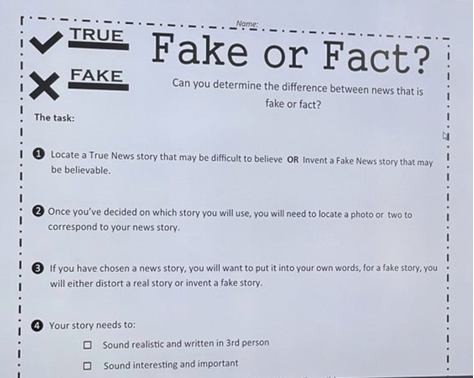Fact-checking is the process of verifying the accuracy and authenticity of information that is being circulated in various media platforms. It is important for young generations to develop the habit of fact-checking because it helps them distinguish between real and fake news, and make informed decisions based on accurate information. More in detail, in younger generations fact checking encourages critical thinking, helping them to develop a deeper understanding of the topic and make better-informed decisions, builds trust, helps young people to have confidence in the information they receive from various media sources, prevents the spread of misinformation and promotes media literacy, which is the ability to analyze, evaluate and create media messages.

In the past weeks ACTIVE teachers have continued their activities at school and one of the project in Austria has been referred to promote an active attitude in checking the news starting from a discussion on the Middle-East conflict. A class of students aged 16 has been divided into in 2 groups, being one asked to look up information on the topic on the internet, where social media have been forbidden, and the other was only allowed to use social media as a source of information. The socialization activity, where the students reported their major findings to the class, allowed a common discussion and thus understanding of the level of reliability of the different sources of information.
